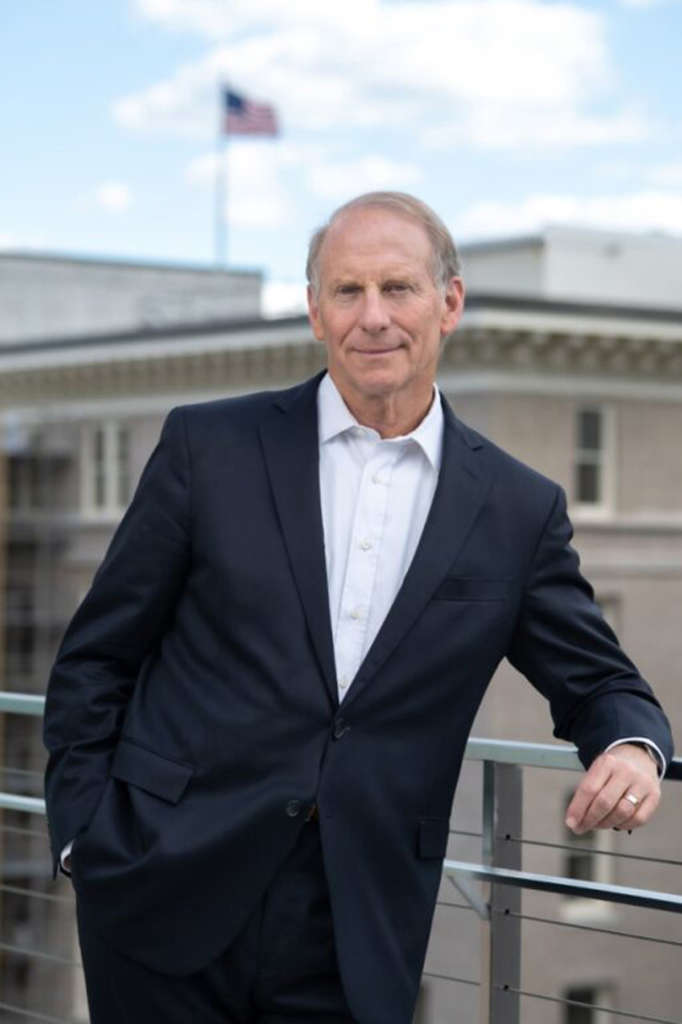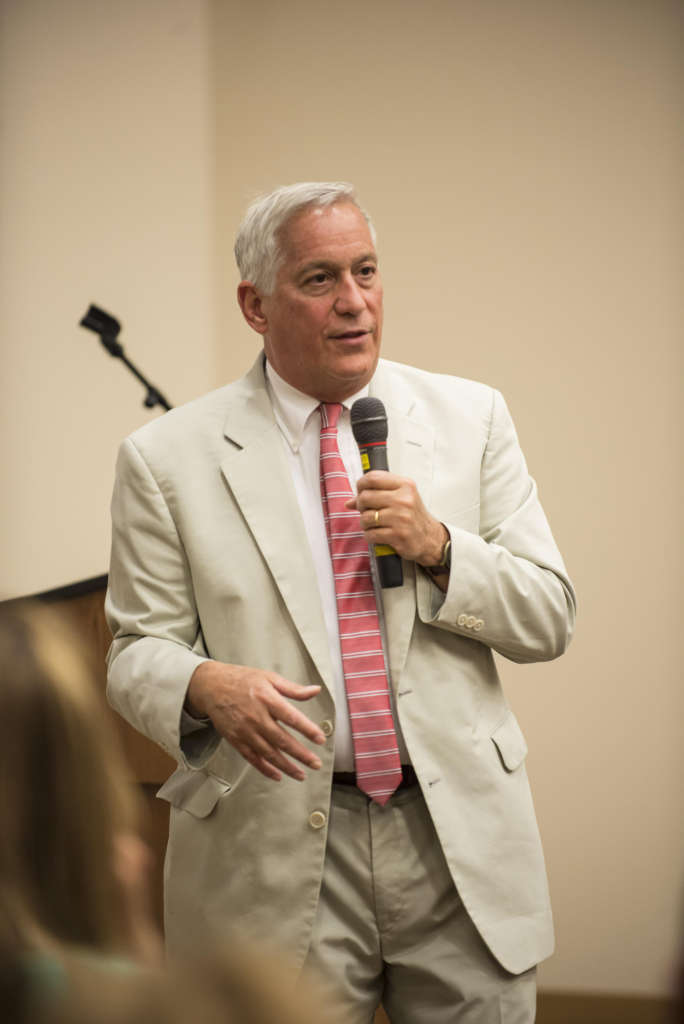Over 1,000 Colorado and American citizens tapped into a wide-ranging, non-partisan discussion Monday about the state of this deeply divided nation and what to do about it.
Sponsored by Colorado Mountain College (CMC), “Rediscovering Common Ground” was the first of a series of community conversations in 2024, about civic discourse and engagement. The series is inspired by CMC’s Common Reader book, The Bill of Obligations: The Ten Habits of Good Citizens by Richard Haass, an American diplomat and former president of the Council on Foreign Relations

Joining Haass by Zoom was Walter Isaacson, historian, author, and former CEO of CNN, as well as Mary Louise Kelly, of NPR’s All Things Considered, who served as moderator.
Kelly opened by asking to first take a look back, to see how America’s history might illuminate the year 2024.
Isaacson noted that as hard-headed realists, the founders of the country were familiar with the differing religions and ethnicities in the colonies.
Franklin contributed money to every house of worship in Philadelphia, even building a non-denominational “New Hall” where anyone could preach and anyone could listen.
“We should listen to all,” said Franklin, even an imman from the Near East. Franklin’s demonstration of tolerance and civil discourse was repaid when he died and every religious figure in Philadelphia attended his funeral.
The founders understood that delegates to the Constitutional Convention were not going to see eye-to-eye on everything.
The genius of the delegates was to craft a constitution that had enough balance and leeway so that disagreements could be tempered by compromise into workable ideas.
There was a huge debate about representation, between the big states and the little ones, he said.
“Ben Franklin came up with the compromise idea that big states would be strongest in the House of Representatives, while small states could hold their own in the Senate, where each state had two senators,” said Isaacson.
Compromisers do not make great heroes, he added, “but they do get things done.”

Moderator Kelly wondered aloud why in this day and age, there is so much talk about rights and not as much about responsibilities.
Haass said the founders understood human nature and were an interesting mix of healthy skeptics and idealists – sometimes walking about in the same person.
“When I got the idea of writing this book, I went back and reviewed all the documents from that era, and I saw very little mentions of obligations or responsibilities,” he said. That’s because after fighting the Revolutionary War and struggling and failing to make the Articles of Confederation work, the delegates understood they had obligations to their home states, to each other, and to the country, said Haass.
Kelly asked whether civics courses should be required today.
“Yes,” responded Haass, but added “no less essential is that we can no longer assume that the average citizen understands government, not when some are willing to give up on democracy.”
America is deeply divided, said Haass, and democracy is hard to do. He urged CMC students to utilize their time on campus to practice the role of citizen student, with rights, responsibilities, and yes, obligations to the campus, wider communities, states, and the nation.
Isaacson said he would look forward to the debate about what to include in a civics curriculum. In states and nationally, there are heated debates about what to include or ignore in civics or American history.
“I think civics got squeezed out of the curriculum over the past 30 years,” said Isaacson, in favor of other emergencies and controversies over math, science, reading, and literacy. “As we had a greater focus on rights for this and that group,” he said, “we stopped asking about the common good.”
And like Haass, Isaacson endorsed the idea of college students exercising their civic engagement muscles within the diverse environment of college and university campuses.
Kelly asked the speakers to compare today’s divisions to those in the past.
Haass said he believes the nation’s divisions are more serious today because while the country’s institutions held firm during past upheavals, today’s institutions seem not as robust as in the past. He said the McCarthy era, the Civil Rights period, and the Vietnam War protests were all unsettling, but the nation survived and emerged even stronger.
“It seeems like the ability to enact reforms was stronger back then,” he said, noting that today’s divided Congress hardly gets any legislation passed. He insisted that reforms are badly needed today, in the face of numerous challenges.
Isaacson recalled the famous quote from Ben Franklin when asked what the Constitution delegates had achieved. “A republic, if we can keep it,” responded Franklin. Isaacson said this current rough patch will require the help of every citizen to find a new balance and lasting compromise among competing visions.
Pulling from the recommendations in his book, Haass emphasized the need to be civil, to really listen to a diverse range of people, to be open to compromise. He warned that an absolutist approach to policy means slamming the door on tomorrow’s possible compromises and any hope of making progress.
Isaacson said he feared the nation was sorting itself into deep blue cities amid bright red states. To break free from your neighborhoods and tribes that are comfortable, Isaacson recommended an intentional effort to seek out different voices and opinions. He and his wife are trying to do that with dinner parties and barbecues, where the guest list is as diverse as the country.
Both speakers bemoaned the echo chambers found not only in national media but social media. If people burrow into their own echo chamber or information silo, it becomes more difficult to have a set of common facts among all people, they noted.
“Back in the day, we had Walter Cronkite telling us ‘and that’s the way it was,’ and we had a common ground of information,” said Isaacson.
“So where is the good information?,” asked Kelly.
Both speakers emphasized the value of mainstream media for basic facts, but beyond that are wildly diverse ecosystems of news and opinion. Haass quoted former House Speaker Daniel Patrick Moynihan, who allowed that people are entitled to their own opinions, but not their own facts.
“One has to exercise critical thinking and avoid getting all news and views from one basket,” Haass said. Greater reliance can be put on sources with internal fact-checkers, he said, adding there are no internal fact-checkers in social media – which should serve as a warning flag.
Isaacson said he’s been watching the rise of artificial intelligence (AI) news with some concern. Yet he’s encouraged that open AI source news can be checked by consumers who feed it additional prompts and can find the sources used by AI news and opinion pieces.
So how can immigrants navigate their way into the American news environment, asked Kelly.
Haass said he is encouraged that any immigrant who passes the citizenship test to become a full citizen, automatically knows more about the United States government than most citizens. “They could and should know more,” said Haass, “but that’s a good start” toward engaged citizenship.
Haass called for a much stronger focus on education in the United States, not only to train engaged citizens but to provide everyone with the skills needed to compete and opportunities to succeed.
Kelly shared her alarm at how many news outlets in the United States have been shut down or severely downsized by corporate vampires. “What can we do?” she asked.
Isaacson said that was a serious problem, as the entire spectrum of media has suffered from a damaged business model: the sale of advertising. That’s happened, he said, because Google and Facebook now get 80 percent of all advertising in the nation. He said he’s encouraged by the quality reporting from the ever-growing number of online publications, but acknowledged that a long-term, viable business model for the new media has yet to emerge.
“You need to work together to bring in the needed revenue,” he said.
Kelly said she’s been asking a common question of her journalism peers, as well as leaders in business, politics, and academia: “Are you hopeful?” She’s been pleasantly surprised how many say “Yes.”
“I know I’m supposed to say yes,” said Isaacson, but hope rests more at the local level in the country than in the District of Columbia. “I think it will take a grassroots movement for us, as a nation, to be more civil, to be more decent to one another,” Isaacson said.
Haass echoed that sentiment, saying he was hopeful but not sanguine about how things might turn out in 2024.
“Something is wrong,” Haass said, “and we must become better informed. We can’t just assume that it will all work out in the end. Citizens need to take agency and make changes from the ground up, and not expect it from the top down.”
(Editor’s note: CMC bookstores sold out on the Haass book, but 2,000 more copies have been ordered and should be available for purchase shortly.)




